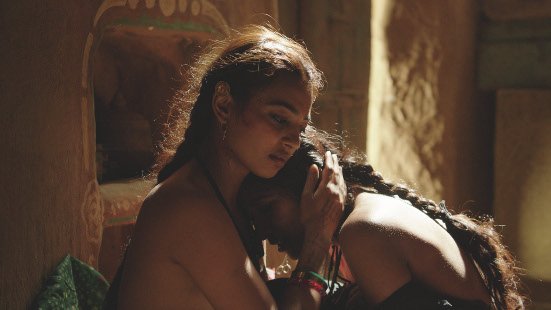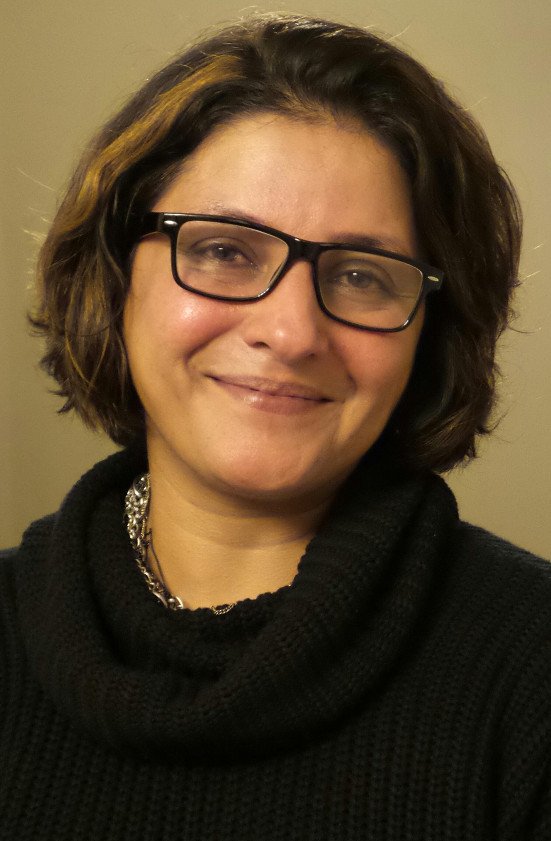
Leena Yadav’s film Parched recently premiered at TIFF. She has directed episodes for Star Bestsellers, Shabd and Teen Patti. Minority-Review’s Canada special correspondent Swati Sharan got a chance to speak with her there
You went from working with big stars like Amitabh Bachchan and Ben Kingsley to a smaller film like Parched. What prompted you to do that?
The story. I don’t make a film thinking who I am going to cast. It depends on how the story turns out. So I never thought of it like that. It was the story that made me make Parched.
For the benefit of our readers, would you like to tell us about how you cam about making it?
Parched is basically a film I discovered in a conversation with Tanishtha Chatterjee, because we started exploring stories we could do together. And she told me stories that she had in conversations that she’d had with these other women in Kutch when she was shooting Road. And I said okay. This sounds really interesting. Let’s make something on the village. But then in writing, it took on a bit more intense tone with violence against women. Then we travelled to all these villages and met lots of women and had many more conversations. And that’s how Parched evolved. It deals with misogyny, women and sexuality. And it celebrates the spirit of these women.

A scene from Parched starring Radhika Apte
Based on your experience, how do you feel people can try getting a break in the entertainment industry more smoothly?
Have an undying passion. There’s no formula to this. There’s no formula to anything in life. So whether you come in and learn everything on the job or you do a course and then join the industry, it’s really up to the individual and the opportunities one gets. But I know one thing. If you have a burning passion to do something, you will figure a way to do it.
Given your education from Lady Sri Ram, do you feel your film-making approach to be more academic?
I’m not sure. I don’t study these things. I actually make films from my heart. But obviously my academics and intellect do influence that. But honestly, for me, I am a storyteller from my heart and not from my head.
Is television a good platform for people to get into the film industry or do you think that people should just go into the film industry directly?
Again, there’s no formula to this but one should just be able to move from one to the next. Like some of the greatest directors worldwide work on television as much as they work on film. Unfortunately, right now in India, we’re not doing very progressive kind of television but I am hopeful for change. In fact, already, we have alot of film directors in India who are also doing television. There is no one platform. There are so many inter-connected mediums like journalism, radio, television and film. You have to find your way.

Leena Yadav
What do you think of the other desi selections that were featured at TIFF this year?
I saw Guilty and Angry Indian Goddesses. And both are amazing. And the thing is that the voices are all very different and that’s the most interesting thing. And somehow, in the whole formula, there are alot of women, which is again very interesting coming from India.
So what do you think of Angry Indian Goddesses winning 1st runner up at TIFF?
It’s really really well-deserved and Pan Nalin (Click here for our interview with Pan Nalin) is such an amazing director and person. The process of how he shot this film is very interesting. So, ya, a huge congratulations to them.
These three desi films enjoy an amazing popularity but then on the other hand, we’re seeing rape cases like Nirbhaya’s coming out of India. Do you find this contradictory?
Two things here. I hope this woman power translates to India. I was asked this question all the time during TIFF. There’s so much of a voice of women in films. I really hope these do well in India because that is the essential thing. Being celebrated in a foreign land is not enough. We need to celebrate it.
And secondly, where you’re talking about Nirbhaya and all, these acts of violence are happening worldwide. India gets highlighted in that. But honestly, if you read about it, it’s happening in Australia, America and everywhere. So yes, these are issues which need to be talked about and acknowledged. Because people like to believe it’s only happening in India, which is not true at all.

A scene from Parched which has Ajay Devgn as one of the producers
Doubtless, violence against women is prominent globally. But it’s the way it’s happening in India. Or maybe it’s how I see it as a desi. I don’t know.
Obviously, you will connect more to what’s happening in your country. But to be honest. People should not say it’s just happening in India. Everyone should acknowledge it’s happening in their backyards too.
Do you think that it’s the lack of access to social programmes that makes it worse for those getting affected by this in India?
I don’t know. The thing is in some areas in India, this is happening for the lack of information, exposure and education. So in India it’s happening in the open. Here it’s happening behind shut doors. I don’t mean to say that education will stop violence. It’s an awareness, discussion and dialogue which needs to happen worldwide. And I think there need to be programmes for men too. They’re not born being that way. It’s their anger and frustration, which leads to acts like this. Even the idea of a man playing up to being the ‘man’ in societies worldwide is a huge pressure. Along the way of playing up to this role, they develop issues of anger and frustration. Where does violence come from? It comes from all these things.
Do we hold a magnifying glass to developing countries when it actually happens everywhere?
Ya. This happens everywhere. Like in India, we like to believe that female infanticide happens in the poorer classes, which is untrue. So everybody is blaming the other one. We feel that violence is happening in the poorer classes which is not true again. It’s also in the educated middle class. So everybody wants to blame the other and live in denial that it’s not happening with them. We all need to talk about it. It’s not about class or the country. Similarly, the West likes to believe it’s happening in China or India.
Even in a developed country like Canada one hears a statistic like one-fourth of women can expect to be sexually assaulted in their lifetime.
Exactly. And we are only talking about what is reported because that’s what forms statistics. There are so many acts which go unreported.
Here’s what I think makes your film stand out here. If somebody is widowed here in Canada, it is unlikely that someone will stop them from seeking their so-called desires.
Ya, we’ve all been conditioned differently depending on our culture and traditions. So the story may be different but circumstances are not very different. The settings are different but the stories are the same.
Is there a message you would like to share with our readers?
I am a filmmaker. I am not leading a mission here. I’ve put my observations and things which disturb me as a storyteller on screen. There are better experts. All I request is a discussion.
For more interviews, click here



0
comments